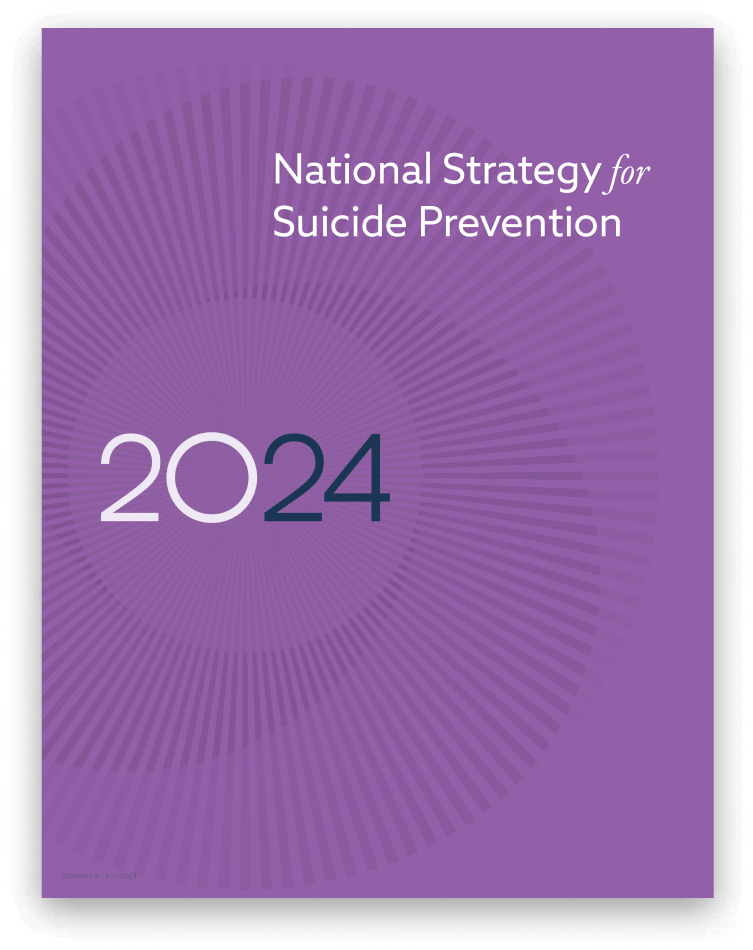Resources
Our resources are tailored to address the multifaceted needs of those affected by suicide, offering evidence-based strategies and practical advice for prevention, intervention, and healing. Whether you are seeking information for professional development or community engagement, our goal is to provide you with the resources to create a safer, more connected environment for everyone.
If you are seeking individualized support for your own mental health, someone you care about, or as a survivor of suicide loss, please visit the resources available at the
NAMI New Hampshire’s website.
www.naminh.org
Resource Library
Welcome to the Resource Library of The Connect Program, an essential component of NAMI New Hampshire’s comprehensive approach to suicide prevention and postvention. This library offers a wide array of materials, including research articles, training manuals, toolkits, and multimedia resources, all aimed at equipping professionals and communities with the knowledge needed to effectively address suicide.
Whether you are a mental health professional, educator, community leader, business professional, or other provider, our Resource Library provides accessible, evidence-based information to support your efforts. By exploring these resources, you can gain valuable insights into best practices, innovative strategies, and compassionate approaches to fostering mental wellness and resilience within your community.
- 988 Lifeline
- New Hampshire Suicide Prevention Council
- New Hamsphire Annual Suicide Prevention Reports
- Education Development Center – Community-Led Suicide Prevention Model and Toolkit
- Recognize the Warning Signs Poster
- NAMI – National Office
- National Institute of Mental Health
- American Association of Suicidology
- Safe and Effective Messaging and Reporting
- Recommendations for Media Reporting on Suicide
- National Recommendations for Depicting Suicide
- Best Practices for Presentations by Suicide Loss and Suicide Attempt Survivors
- Telling Your Own Story: Best Practices for Presentations by Suicide Loss and Suicide Attempt Survivors
2024 National Strategy for Suicide Prevention
The 2024 National Strategy for Suicide Prevention is a bold new 10-year, comprehensive, whole-of-society approach to suicide prevention that provides concrete recommendations for addressing gaps in the suicide prevention field. This coordinated and comprehensive approach to suicide prevention at the national, state, tribal, local, and territorial levels relies upon critical partnerships across the public and private sectors. People with lived experience are critical to the success of this work.
The National Strategy seeks to prevent suicide risk in the first place; identify and support people with increased risk through treatment and crisis intervention; prevent reattempts; promote long-term recovery; and support survivors of suicide loss.
Connect™ fits into each of the strategic directions, including:
Community-Based Suicide Prevention
Connect™ supports community-based suicide prevention through Zero Suicide
and Connect trainings.
Treatment and Crisis Services
Connect implements a systemic approach to health care with Zero Suicide framework and contributes to key elements of the Zero Suicide framework.
Surveillance, Quality Improvement, and Research
Connect is effective among diverse populations, resulting in more significant reductions in suicidal thoughts than when compared to other treatments.
Health Equity in Suicide Prevention
Connect is effective among diverse populations.
Information & Announcements for Connect Suicide Prevention & Postvention Trainers
On this page, Connect Trainers will find tools, materials, and key updates to support new & ongoing suicide prevention/postvention training efforts.
Point of Contact for Connect Trainers
Susan Ward, NAMI New Hampshire’s Suicide Prevention and Postvention Manager, coordinates support for all Connect trainers. Reach out to Susan for any updates to your trainer profile (e.g. name, email), slide deck needs, evaluation request, or any other needs.
Email: sward@naminh.org
"Connect"ion! – A Community of Practice for Connect Trainers
We’re thrilled to announce “Connect”ion! – a new, free, quarterly virtual Community of Practice for Connect trainers in 2025!
- Duration: 90 minutes live, virtual session
- What’s Included: professional development, Connect updates, and an opportunity to meet and share experiences with fellow trainers.
- Register for more information and to attend!
Are you due for Connect Trainer Reauthorization?
Don't Lose Your Ability To Deliver Connect Training!
Trainer reauthorization is required every two years to continue using Connect materials for training. Since Connect materials are licensed and copyrighted, staying up-to-date is essential. In 2025, we introduced more flexible options to make the reauthorization process easier and more affordable for you or your employer.
Grace Period Through August 30th
If your authorization has expired, no worries! You can continue using Connect materials through 8/30/25 while you make arrangements for reauthorization. Let us help you get back on track. After August 30th if you have not made arrangements for reauthorization, you will be expected to cease and desist from using Connect content and materials.
Reauthorization Options:
- Customized Workshops: Tailored, 2-hour workshops for your organization. Contact us for pricing.
- Online Reauthorization Sessions: $149 per person. Live, virtual 2-hour sessions for Prevention and Postvention trainers, available throughout the year. Find more information, a schedule, and register at the links below.
Register for Prevention reauthorization HERE.
Register for Postvention reauthorization HERE.
For any questions or to explore additional reauthorization options, contact Amy Cook at acook@naminh.org. We’re here to help, so reach out if you’re past your 2-year reauthorization period!
Essential Tools for Connect Training Delivery
Training Evaluation
It is important for us to collect information and feedback that allows us to measure the effectiveness of Connect and also make improvements. You can either provide a full pre- and post-survey to participants or you can provide them a shorter, online training exit survey.
If you need to request a link for the Training Exit Survey (TES), please use the link below.
Training Tracker
We are also asking all Trainers to start using a new Training Tracker to report your training delivery. It helps us keep our database up to date and ensures you’re recognized as an active trainer. Please complete this after each training you deliver. Save this link in your browser favorites!
Connect Trainer Quarterly eNews
The Connect Program will be sending a quarterly eNews through Constant Contact to all Connect Trainers. Constant Contact provides a feature to opt out if you choose to not receive these communications. If you are not receiving this communication and want to, please contact Susan Ward at sward@naminh.org.
Translated Materials
Through a partnership with State of Vermont- Agency of Human Services/ Department of Health, a limited amount of Connect materials were translated into 8 languages to meet the needs of communities seeking suicide prevention awareness and training. A 3-hour version of the Connect Community Helper Suicide Prevention training PowerPoint slide deck, Recognize the Warning Signs poster/handout, and The Words We Use Matter handout from the Suicide Prevention Resource Center were translated into the following languages:
- Swahili
- French
- Somali
- Nepali
- Spanish
- Arabic
- Bosnian
- Maay Maay
If you speak, and work with a community that speaks, one of these languages and would like the materials to deliver the Connect training in that language, please contact Susan Ward at sward@naminh.org.
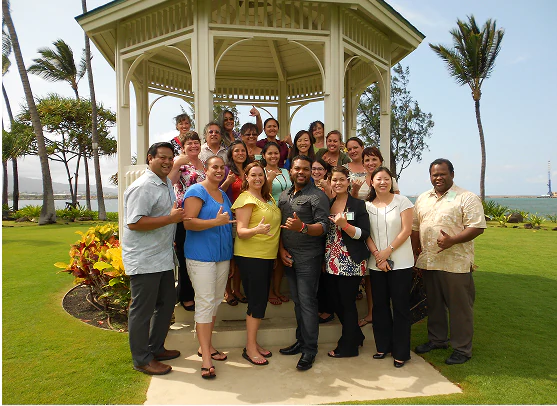
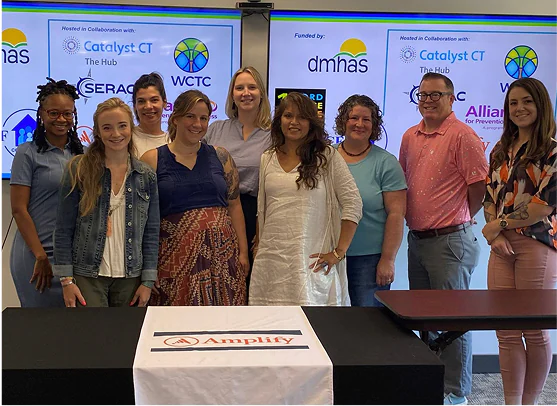
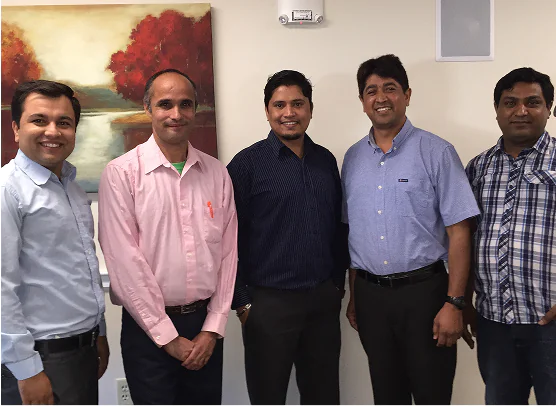
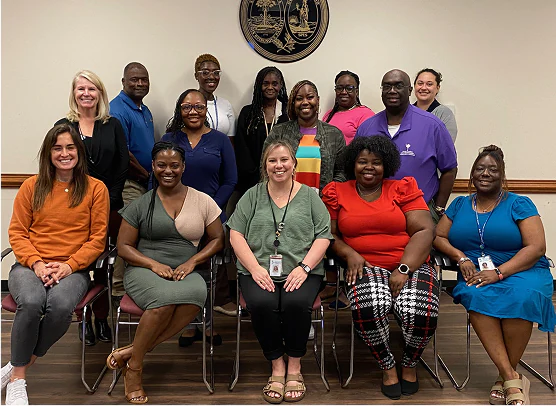
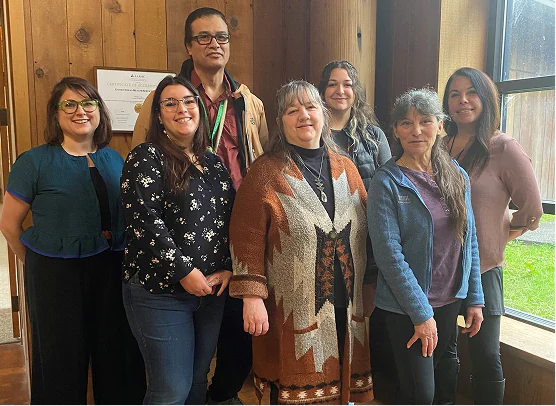
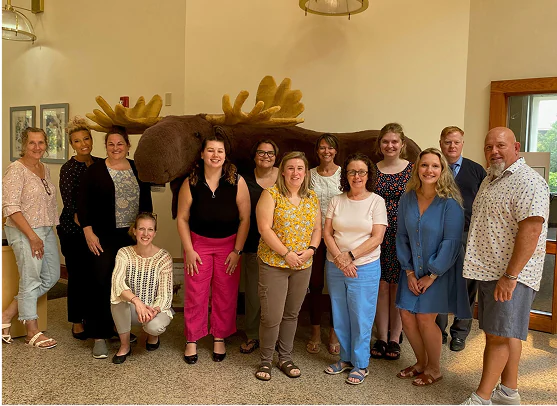
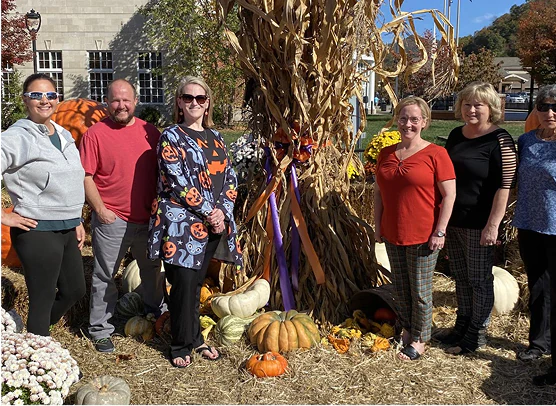
Find answers to common inquiries about our trainings, services, and experience.
General
Community Helper training equips individuals of all types and roles (e.g., family, teachers, coaches, healthcare providers) within any community with skills to recognize suicide warning signs and offer support. It teaches how to identify at-risk individuals, engage in empathetic conversations, and connect them with resources. It aims to create a supportive network within the community, where people are empowered to intervene and prevent suicide.
Prevention/intervention and postvention focus on different aspects of suicide and are generally taught separately. Prevention/intervention addresses identifying warning signs and intervening before an attempt, while postvention supports those after a suicide. Although postvention can act as a form of prevention by addressing the aftermath and preventing further tragedies, when these topics are introduced for the first time, they are generally taught separately. This ensures that participants can fully engage with and absorb the unique content of each training.
For all suicide prevention and postvention trainings, costs vary depending on multiple factors including training selected, number of participants, method of delivery, location of training delivery, and number of trainers. Costs include NAMI NH staff time and all materials.
Specialized Workshops | ||
In Person (NH Only) | Virtual | |
2-hours | $800 | $1,100 |
3-hours | $1,100 | $1,400 |
Consultation | ||
In Person (NH Only) | Virtual or Phone | |
Per Hour | $300 | $300 |
*Prices current as of December 2024. Please call for updated pricing.
*Travel expenses for in-person services are added to the total cost of training package for each NAMI NH staff required for training delivery.
*Virtual trainings incur an additional fee per day for IT technical support prior to, and during, the training.
Prevention/Intervention teaches how to recognize and respond to suicidal thoughts or behaviors before an attempt. Postvention focuses on supporting individuals and communities after a suicide, offering grief support, reducing stigma, and helping to prevent further suicides.
A Postvention Planning Session is for key stakeholders who have decision-making authority or responsibility in developing or managing the services or policies implemented following a suicide or sudden death. Attendance requires prior participation in Postvention training.
A Postvention Planning Session is for key stakeholders who have decision-making authority or responsibility in developing or managing the services or policies implemented following a suicide or sudden death. Attendance requires prior participation in Postvention training.
A Postvention Planning Session is for key stakeholders who have decision-making authority or responsibility in developing or managing the services or policies implemented following a suicide or sudden death. Attendance requires prior participation in Postvention training.
A Postvention Planning Session is for key stakeholders who have decision-making authority or responsibility in developing or managing the services or policies implemented following a suicide or sudden death. Attendance requires prior participation in Postvention training.
A Postvention Planning Session is for key stakeholders who have decision-making authority or responsibility in developing or managing the services or policies implemented following a suicide or sudden death. Attendance requires prior participation in Postvention training.
A Postvention Planning Session is for key stakeholders who have decision-making authority or responsibility in developing or managing the services or policies implemented following a suicide or sudden death. Attendance requires prior participation in Postvention training.
A Postvention Planning Session is for key stakeholders who have decision-making authority or responsibility in developing or managing the services or policies implemented following a suicide or sudden death. Attendance requires prior participation in Postvention training.
A Postvention Planning Session is for key stakeholders who have decision-making authority or responsibility in developing or managing the services or policies implemented following a suicide or sudden death. Attendance requires prior participation in Postvention training.
A Postvention Planning Session is for key stakeholders who have decision-making authority or responsibility in developing or managing the services or policies implemented following a suicide or sudden death. Attendance requires prior participation in Postvention training.
A Postvention Planning Session is for key stakeholders who have decision-making authority or responsibility in developing or managing the services or policies implemented following a suicide or sudden death. Attendance requires prior participation in Postvention training.
A Postvention Planning Session is for key stakeholders who have decision-making authority or responsibility in developing or managing the services or policies implemented following a suicide or sudden death. Attendance requires prior participation in Postvention training.
A Postvention Planning Session is for key stakeholders who have decision-making authority or responsibility in developing or managing the services or policies implemented following a suicide or sudden death. Attendance requires prior participation in Postvention training.
A Postvention Planning Session is for key stakeholders who have decision-making authority or responsibility in developing or managing the services or policies implemented following a suicide or sudden death. Attendance requires prior participation in Postvention training.
A Postvention Planning Session is for key stakeholders who have decision-making authority or responsibility in developing or managing the services or policies implemented following a suicide or sudden death. Attendance requires prior participation in Postvention training.
A Postvention Planning Session is for key stakeholders who have decision-making authority or responsibility in developing or managing the services or policies implemented following a suicide or sudden death. Attendance requires prior participation in Postvention training.
A Postvention Planning Session is for key stakeholders who have decision-making authority or responsibility in developing or managing the services or policies implemented following a suicide or sudden death. Attendance requires prior participation in Postvention training.
A Postvention Planning Session is for key stakeholders who have decision-making authority or responsibility in developing or managing the services or policies implemented following a suicide or sudden death. Attendance requires prior participation in Postvention training.
A Postvention Planning Session is for key stakeholders who have decision-making authority or responsibility in developing or managing the services or policies implemented following a suicide or sudden death. Attendance requires prior participation in Postvention training.
A Postvention Planning Session is for key stakeholders who have decision-making authority or responsibility in developing or managing the services or policies implemented following a suicide or sudden death. Attendance requires prior participation in Postvention training.
A Postvention Planning Session is for key stakeholders who have decision-making authority or responsibility in developing or managing the services or policies implemented following a suicide or sudden death. Attendance requires prior participation in Postvention training.
A Postvention Planning Session is for key stakeholders who have decision-making authority or responsibility in developing or managing the services or policies implemented following a suicide or sudden death. Attendance requires prior participation in Postvention training.
A Postvention Planning Session is for key stakeholders who have decision-making authority or responsibility in developing or managing the services or policies implemented following a suicide or sudden death. Attendance requires prior participation in Postvention training.
Training for Students
The program accommodates up to 30 students and 15 adults, who will co-lead future trainings.
At least 2 adults should be trained along with a minimum of 6 students to ensure program sustainability.
Yes, parental permission is required. Schools/organizations are responsible for obtaining and managing permission forms, using either the provided template or their own form.
Costs vary based on factors like training format, location, number of participants, and required materials. The range for Connect Youth Leader is $2,500 - $7,000 (based on 2025 rates and subject to change). Your cost will be based on the level of service and factors related to the delivery of the service. Contact us for a cost quote via our Contact Us form or email info@theconnectprogram.org.
Yes, we can adjust quotes, contracts, or invoices to meet specific requirements. Let us know your needs, and we’ll work with you to meet them.
Graduates cannot use the curriculum or materials after graduating. It is recommended that each school program train a cohort of new students within their school each year to replace graduating Youth Leaders and ensure sustainability for the program.
If an adult co-leader leaves, they are no longer authorized to use the curriculum or materials outside the district where they were trained.
The program is designed for high school students, but younger students may participate if they are mature, interested, and able to commit. Discuss with your NAMI NH Connect Trainer before inviting middle school students.
No, adults can be volunteers, parents, PTA members, or community leaders, as long as they are screened and approved by the school. They should be experienced with youth and committed to the program.
Youth Leaders can train within their own school district. They can collaborate with Youth Leaders from other districts for joint events but cannot train an audience of only students from another district.
Yes! The program is available to organizations like YMCAs, summer camps, and community youth groups that want to engage in suicide prevention.
Yes! You can host Day 2 training for a mix of youth and adults to build interest in a future Youth Leader program. Contact us to explore this option.
Fill out our interest form, and we'll reach out with more details. You can also check out our recorded Youth Leader Program Overview presentation on our eLearning platform.
Students who’ve recently lost someone to suicide may find suicide prevention training difficult. We ask that you speak with the NAMI NH Connect Trainer assigned to your event to assess their readiness and appropriateness for the training.
Training for Individuals & Small Groups
Connect offers a variety of in-person and online training programs for a variety of audiences. Types of training include:
- Suicide Prevention/Intervention: A Nationally Designated Best Practice Program, Connect Suicide Prevention/Intervention training utilizes a unique, community-based, public health approach to increase the competence of participants in recognizing and responding to individuals who are suicidal or at risk for suicide. Connect helps participants examine suicide in the context of the individual, family, community, and society.
- Suicide Postvention: A Nationally Designated Best Practice Program, this training focuses on promoting healing and reducing risk after a suicide. It is geared toward professionals who are involved in responding to a suicide death, such as school counselors, faith leaders, law enforcement, and mental health/substance abuse providers. It is not appropriate for general community members who do not have a direct role in postvention responses. Connect Postvention Training equips key stakeholders in a community with the knowledge and skills to navigate grief and the complex legal and ethical challenges after a suicide. The training can be combined with a Postvention Response Planning Session which is a planning tool to help participants develop protocols for an integrated response system.
- Facilitated Planning Session: A full day of facilitated strategic planning can be added to your training package. A Suicide Prevention Planning Session will guide participants to develop suicide prevention protocols, practices, or initiatives. The Suicide Postvention Response Planning Session is a planning tool to help participants develop protocols for an integrated response system. Up to 25 key stakeholders with responsibility for suicide prevention or postvention response in your community are invited to participate in the session.
- Train-the-Trainer: Connect Train-the-Trainer is available in both suicide prevention and postvention for organizations seeking a sustainable way to deliver quality training to employees or community members. This model builds capacity and sustainability for an organization, community, or state to provide ongoing training at no cost in suicide prevention or postvention for a period of two years before reauthorization is required. Using a unique public health and socio-ecological model, Connect training enhances the ability of professionals to provide effective, coordinated, and appropriate responses to suicide across the lifespan and across systems.
- Specialized workshops on a topic related to suicide prevention: To help organizations and school districts meet the needs of suicide prevention requirements or initiatives, Connect team members can provide 2-3-hour workshops in-person in New Hampshire or virtually for any community on topics related to suicide prevention and postvention. If this is of interest to you, let’s talk about what we can do and what might meet your needs.
- Consultation Services: NAMI New Hampshire has been a national leader in both the fields of suicide prevention and postvention for many years and we are happy to share our experience with you in order to support your community’s efforts. Consultation services can include information about best-practices, assistance with planning and problem-solving, recommendations for implementation, and more. You can select the consultant of your choice from our team.
Postvention is an organized, immediate, short-term, and long-term response in the aftermath of a suicide to promote healing and mitigate the negative effects of exposure to suicide. The U.S. national guidelines developed by the Survivors of Suicide Loss Task Force indicates that an effective postvention response strives to facilitate the healing of individuals from the grief and distress of suicide loss, mitigate other negative effects of exposure to suicide, and prevent suicide among people who are at high risk after exposure to suicide.
The Suicide Prevention Resource Center recommends all settings incorporate postvention as a component of a comprehensive approach to suicide prevention. Key principles for creating a comprehensive postvention effort include:
- Planning ahead to address individual and community needs
- Providing immediate and long-term support
- Tailoring responses and services to the unique needs of suicide loss survivors
Involving survivors of suicide loss in planning and implementing postvention efforts
Connect offers postvention trainings and services to educate key stakeholders in your community about effective postvention response and planning and guide them to develop and implement effective strategies, practices, and protocols that will promote healing.
For all suicide prevention and postvention trainings, costs vary depending on multiple factors including training selected, number of participants, method of delivery, location of training delivery, and number of trainers. Costs include NAMI NH staff time and all materials.
Specialized Workshops | ||
In Person (NH Only) | Virtual | |
2-hours | $800 | $1,100 |
3-hours | $1,100 | $1,400 |
Consultation | ||
In Person (NH Only) | Virtual or Phone | |
Per Hour | $300 | $300 |
*Prices current as of December 2024. Please call for updated pricing.
*Travel expenses for in-person services are added to the total cost of training package for each NAMI NH staff required for training delivery.
*Virtual trainings incur an additional fee per day for IT technical support prior to, and during, the training.
Training for Organizations
Connect offers a variety of in-person and online training programs for a variety of audiences. Types of training include:
- Suicide Prevention/Intervention: A Nationally Designated Best Practice Program, Connect Suicide Prevention/Intervention training utilizes a unique, community-based, public health approach to increase the competence of participants in recognizing and responding to individuals who are suicidal or at risk for suicide. Connect helps participants examine suicide in the context of the individual, family, community, and society.
- Suicide Postvention: A Nationally Designated Best Practice Program, this training focuses on promoting healing and reducing risk after a suicide. It is geared toward professionals who are involved in responding to a suicide death, such as school counselors, faith leaders, law enforcement, and mental health/substance abuse providers. It is not appropriate for general community members who do not have a direct role in postvention responses. Connect Postvention Training equips key stakeholders in a community with the knowledge and skills to navigate grief and the complex legal and ethical challenges after a suicide. The training can be combined with a Postvention Response Planning Session which is a planning tool to help participants develop protocols for an integrated response system.
- Facilitated Planning Session: A full day of facilitated strategic planning can be added to your training package. A Suicide Prevention Planning Session will guide participants to develop suicide prevention protocols, practices, or initiatives. The Suicide Postvention Response Planning Session is a planning tool to help participants develop protocols for an integrated response system. Up to 25 key stakeholders with responsibility for suicide prevention or postvention response in your community are invited to participate in the session.
- Train-the-Trainer: Connect Train-the-Trainer is available in both suicide prevention and postvention for organizations seeking a sustainable way to deliver quality training to employees or community members. This model builds capacity and sustainability for an organization, community, or state to provide ongoing training at no cost in suicide prevention or postvention for a period of two years before reauthorization is required. Using a unique public health and socio-ecological model, Connect training enhances the ability of professionals to provide effective, coordinated, and appropriate responses to suicide across the lifespan and across systems.
- Specialized workshops on a topic related to suicide prevention: To help organizations and school districts meet the needs of suicide prevention requirements or initiatives, Connect team members can provide 2-3-hour workshops in-person in New Hampshire or virtually for any community on topics related to suicide prevention and postvention. If this is of interest to you, let’s talk about what we can do and what might meet your needs.
- Consultation Services: NAMI New Hampshire has been a national leader in both the fields of suicide prevention and postvention for many years and we are happy to share our experience with you in order to support your community’s efforts. Consultation services can include information about best-practices, assistance with planning and problem-solving, recommendations for implementation, and more. You can select the consultant of your choice from our team.
Postvention is an organized, immediate, short-term, and long-term response in the aftermath of a suicide to promote healing and mitigate the negative effects of exposure to suicide. The U.S. national guidelines developed by the Survivors of Suicide Loss Task Force indicates that an effective postvention response strives to facilitate the healing of individuals from the grief and distress of suicide loss, mitigate other negative effects of exposure to suicide, and prevent suicide among people who are at high risk after exposure to suicide.
The Suicide Prevention Resource Center recommends all settings incorporate postvention as a component of a comprehensive approach to suicide prevention. Key principles for creating a comprehensive postvention effort include:
- Planning ahead to address individual and community needs
- Providing immediate and long-term support
- Tailoring responses and services to the unique needs of suicide loss survivors
Involving survivors of suicide loss in planning and implementing postvention efforts
Connect offers postvention trainings and services to educate key stakeholders in your community about effective postvention response and planning and guide them to develop and implement effective strategies, practices, and protocols that will promote healing.
For all suicide prevention and postvention trainings, costs vary depending on multiple factors including training selected, number of participants, method of delivery, location of training delivery, and number of trainers. Costs include NAMI NH staff time and all materials.
Specialized Workshops
| In Person (NH Only) | Virtual | |
|---|---|---|
| 2-hours | $800 | $1,100 |
| 3-hours | $1,100 | $1,400 |
Consultation
| In Person (NH Only) | Virtual or Phone | |
|---|---|---|
| Per Hour | $300 | $300 |
*Prices current as of December 2024. Please call for updated pricing.
*Travel expenses for in-person services are added to the total cost of training package for each NAMI NH staff required for training delivery.
*Virtual trainings incur an additional fee per day for IT technical support prior to, and during, the training.
Prevention/Intervention teaches how to recognize and respond to suicidal thoughts or behaviors before an attempt. Postvention focuses on supporting individuals and communities after a suicide, offering grief support, reducing stigma, and helping to prevent further suicides.
A Postvention Planning Session is for key stakeholders who have decision-making authority or responsibility in developing or managing the services or policies implemented following a suicide or sudden death. Attendance requires prior participation in Postvention training.
A Postvention Planning Session is for key stakeholders who have decision-making authority or responsibility in developing or managing the services or policies implemented following a suicide or sudden death. Attendance requires prior participation in Postvention training.
A Postvention Planning Session is for key stakeholders who have decision-making authority or responsibility in developing or managing the services or policies implemented following a suicide or sudden death. Attendance requires prior participation in Postvention training.
Training for Federal/State Agencies & Communities
Community Helper training equips individuals of all types and roles (e.g., family, teachers, coaches, healthcare providers) within any community with skills to recognize suicide warning signs and offer support. It teaches how to identify at-risk individuals, engage in empathetic conversations, and connect them with resources. It aims to create a supportive network within the community, where people are empowered to intervene and prevent suicide.
Prevention/intervention and postvention focus on different aspects of suicide and are generally taught separately. Prevention/intervention addresses identifying warning signs and intervening before an attempt, while postvention supports those after a suicide. Although postvention can act as a form of prevention by addressing the aftermath and preventing further tragedies, when these topics are introduced for the first time, they are generally taught separately. This ensures that participants can fully engage with and absorb the unique content of each training.
For all suicide prevention and postvention trainings, costs vary depending on multiple factors including training selected, number of participants, method of delivery, location of training delivery, and number of trainers. Costs include NAMI NH staff time and all materials.
Specialized Workshops | ||
In Person (NH Only) | Virtual | |
2-hours | $800 | $1,100 |
3-hours | $1,100 | $1,400 |
Consultation | ||
In Person (NH Only) | Virtual or Phone | |
Per Hour | $300 | $300 |
*Prices current as of December 2024. Please call for updated pricing.
*Travel expenses for in-person services are added to the total cost of training package for each NAMI NH staff required for training delivery.
*Virtual trainings incur an additional fee per day for IT technical support prior to, and during, the training.
Connect offers a variety of in-person and online training programs for a variety of audiences. Types of training include:
- Suicide Prevention/Intervention: A Nationally Designated Best Practice Program, Connect Suicide Prevention/Intervention training utilizes a unique, community-based, public health approach to increase the competence of participants in recognizing and responding to individuals who are suicidal or at risk for suicide. Connect helps participants examine suicide in the context of the individual, family, community, and society.
- Suicide Postvention: A Nationally Designated Best Practice Program, this training focuses on promoting healing and reducing risk after a suicide. It is geared toward professionals who are involved in responding to a suicide death, such as school counselors, faith leaders, law enforcement, and mental health/substance abuse providers. It is not appropriate for general community members who do not have a direct role in postvention responses. Connect Postvention Training equips key stakeholders in a community with the knowledge and skills to navigate grief and the complex legal and ethical challenges after a suicide. The training can be combined with a Postvention Response Planning Session which is a planning tool to help participants develop protocols for an integrated response system.
- Facilitated Planning Session: A full day of facilitated strategic planning can be added to your training package. A Suicide Prevention Planning Session will guide participants to develop suicide prevention protocols, practices, or initiatives. The Suicide Postvention Response Planning Session is a planning tool to help participants develop protocols for an integrated response system. Up to 25 key stakeholders with responsibility for suicide prevention or postvention response in your community are invited to participate in the session.
- Train-the-Trainer: Connect Train-the-Trainer is available in both suicide prevention and postvention for organizations seeking a sustainable way to deliver quality training to employees or community members. This model builds capacity and sustainability for an organization, community, or state to provide ongoing training at no cost in suicide prevention or postvention for a period of two years before reauthorization is required. Using a unique public health and socio-ecological model, Connect training enhances the ability of professionals to provide effective, coordinated, and appropriate responses to suicide across the lifespan and across systems.
- Specialized workshops on a topic related to suicide prevention: To help organizations and school districts meet the needs of suicide prevention requirements or initiatives, Connect team members can provide 2-3-hour workshops in-person in New Hampshire or virtually for any community on topics related to suicide prevention and postvention. If this is of interest to you, let’s talk about what we can do and what might meet your needs.
- Consultation Services: NAMI New Hampshire has been a national leader in both the fields of suicide prevention and postvention for many years and we are happy to share our experience with you in order to support your community’s efforts. Consultation services can include information about best-practices, assistance with planning and problem-solving, recommendations for implementation, and more. You can select the consultant of your choice from our team.
Postvention is an organized, immediate, short-term, and long-term response in the aftermath of a suicide to promote healing and mitigate the negative effects of exposure to suicide. The U.S. national guidelines developed by the Survivors of Suicide Loss Task Force indicates that an effective postvention response strives to facilitate the healing of individuals from the grief and distress of suicide loss, mitigate other negative effects of exposure to suicide, and prevent suicide among people who are at high risk after exposure to suicide.
The Suicide Prevention Resource Center recommends all settings incorporate postvention as a component of a comprehensive approach to suicide prevention. Key principles for creating a comprehensive postvention effort include:
- Planning ahead to address individual and community needs
- Providing immediate and long-term support
- Tailoring responses and services to the unique needs of suicide loss survivors
Involving survivors of suicide loss in planning and implementing postvention efforts
Connect offers postvention trainings and services to educate key stakeholders in your community about effective postvention response and planning and guide them to develop and implement effective strategies, practices, and protocols that will promote healing.
For all suicide prevention and postvention trainings, costs vary depending on multiple factors including training selected, number of participants, method of delivery, location of training delivery, and number of trainers. Costs include NAMI NH staff time and all materials.
Specialized Workshops
| In Person (NH Only) | Virtual | |
|---|---|---|
| 2-hours | $800 | $1,100 |
| 3-hours | $1,100 | $1,400 |
Consultation
| In Person (NH Only) | Virtual or Phone | |
|---|---|---|
| Per Hour | $300 | $300 |
*Prices current as of December 2024. Please call for updated pricing.
*Travel expenses for in-person services are added to the total cost of training package for each NAMI NH staff required for training delivery.
*Virtual trainings incur an additional fee per day for IT technical support prior to, and during, the training.
Prevention/Intervention teaches how to recognize and respond to suicidal thoughts or behaviors before an attempt. Postvention focuses on supporting individuals and communities after a suicide, offering grief support, reducing stigma, and helping to prevent further suicides.
A Postvention Planning Session is for key stakeholders who have decision-making authority or responsibility in developing or managing the services or policies implemented following a suicide or sudden death. Attendance requires prior participation in Postvention training.
A Postvention Planning Session is for key stakeholders who have decision-making authority or responsibility in developing or managing the services or policies implemented following a suicide or sudden death. Attendance requires prior participation in Postvention training.
A Postvention Planning Session is for key stakeholders who have decision-making authority or responsibility in developing or managing the services or policies implemented following a suicide or sudden death. Attendance requires prior participation in Postvention training.
Community Helper training equips individuals of all types and roles (e.g., family, teachers, coaches, healthcare providers) within any community with skills to recognize suicide warning signs and offer support. It teaches how to identify at-risk individuals, engage in empathetic conversations, and connect them with resources. It aims to create a supportive network within the community, where people are empowered to intervene and prevent suicide.
Prevention/intervention and postvention focus on different aspects of suicide and are generally taught separately. Prevention/intervention addresses identifying warning signs and intervening before an attempt, while postvention supports those after a suicide. Although postvention can act as a form of prevention by addressing the aftermath and preventing further tragedies, when these topics are introduced for the first time, they are generally taught separately. This ensures that participants can fully engage with and absorb the unique content of each training.
For all suicide prevention and postvention trainings, costs vary depending on multiple factors including training selected, number of participants, method of delivery, location of training delivery, and number of trainers. Costs include NAMI NH staff time and all materials.
Specialized Workshops | ||
In Person (NH Only) | Virtual | |
2-hours | $800 | $1,100 |
3-hours | $1,100 | $1,400 |
Consultation | ||
In Person (NH Only) | Virtual or Phone | |
Per Hour | $300 | $300 |
*Prices current as of December 2024. Please call for updated pricing.
*Travel expenses for in-person services are added to the total cost of training package for each NAMI NH staff required for training delivery.
*Virtual trainings incur an additional fee per day for IT technical support prior to, and during, the training.
The program accommodates up to 30 students and 15 adults, who will co-lead future trainings.
At least 2 adults should be trained along with a minimum of 6 students to ensure program sustainability.
Yes, parental permission is required. Schools/organizations are responsible for obtaining and managing permission forms, using either the provided template or their own form.
Costs vary based on factors like training format, location, number of participants, and required materials. The range for Connect Youth Leader is $2,500 - $7,000 (based on 2025 rates and subject to change). Your cost will be based on the level of service and factors related to the delivery of the service. Contact us for a cost quote via our Contact Us form or email info@theconnectprogram.org.
Yes, we can adjust quotes, contracts, or invoices to meet specific requirements. Let us know your needs, and we’ll work with you to meet them.
Graduates cannot use the curriculum or materials after graduating. It is recommended that each school program train a cohort of new students within their school each year to replace graduating Youth Leaders and ensure sustainability for the program.
If an adult co-leader leaves, they are no longer authorized to use the curriculum or materials outside the district where they were trained.
The program is designed for high school students, but younger students may participate if they are mature, interested, and able to commit. Discuss with your NAMI NH Connect Trainer before inviting middle school students.
No, adults can be volunteers, parents, PTA members, or community leaders, as long as they are screened and approved by the school. They should be experienced with youth and committed to the program.
Youth Leaders can train within their own school district. They can collaborate with Youth Leaders from other districts for joint events but cannot train an audience of only students from another district.
Yes! The program is available to organizations like YMCAs, summer camps, and community youth groups that want to engage in suicide prevention.
Yes! You can host Day 2 training for a mix of youth and adults to build interest in a future Youth Leader program. Contact us to explore this option.
Fill out our interest form, and we'll reach out with more details. You can also check out our recorded Youth Leader Program Overview presentation on our eLearning platform.
Students who’ve recently lost someone to suicide may find suicide prevention training difficult. We ask that you speak with the NAMI NH Connect Trainer assigned to your event to assess their readiness and appropriateness for the training.
Connect offers a variety of in-person and online training programs for a variety of audiences. Types of training include:
- Suicide Prevention/Intervention: A Nationally Designated Best Practice Program, Connect Suicide Prevention/Intervention training utilizes a unique, community-based, public health approach to increase the competence of participants in recognizing and responding to individuals who are suicidal or at risk for suicide. Connect helps participants examine suicide in the context of the individual, family, community, and society.
- Suicide Postvention: A Nationally Designated Best Practice Program, this training focuses on promoting healing and reducing risk after a suicide. It is geared toward professionals who are involved in responding to a suicide death, such as school counselors, faith leaders, law enforcement, and mental health/substance abuse providers. It is not appropriate for general community members who do not have a direct role in postvention responses. Connect Postvention Training equips key stakeholders in a community with the knowledge and skills to navigate grief and the complex legal and ethical challenges after a suicide. The training can be combined with a Postvention Response Planning Session which is a planning tool to help participants develop protocols for an integrated response system.
- Facilitated Planning Session: A full day of facilitated strategic planning can be added to your training package. A Suicide Prevention Planning Session will guide participants to develop suicide prevention protocols, practices, or initiatives. The Suicide Postvention Response Planning Session is a planning tool to help participants develop protocols for an integrated response system. Up to 25 key stakeholders with responsibility for suicide prevention or postvention response in your community are invited to participate in the session.
- Train-the-Trainer: Connect Train-the-Trainer is available in both suicide prevention and postvention for organizations seeking a sustainable way to deliver quality training to employees or community members. This model builds capacity and sustainability for an organization, community, or state to provide ongoing training at no cost in suicide prevention or postvention for a period of two years before reauthorization is required. Using a unique public health and socio-ecological model, Connect training enhances the ability of professionals to provide effective, coordinated, and appropriate responses to suicide across the lifespan and across systems.
- Specialized workshops on a topic related to suicide prevention: To help organizations and school districts meet the needs of suicide prevention requirements or initiatives, Connect team members can provide 2-3-hour workshops in-person in New Hampshire or virtually for any community on topics related to suicide prevention and postvention. If this is of interest to you, let’s talk about what we can do and what might meet your needs.
- Consultation Services: NAMI New Hampshire has been a national leader in both the fields of suicide prevention and postvention for many years and we are happy to share our experience with you in order to support your community’s efforts. Consultation services can include information about best-practices, assistance with planning and problem-solving, recommendations for implementation, and more. You can select the consultant of your choice from our team.
Postvention is an organized, immediate, short-term, and long-term response in the aftermath of a suicide to promote healing and mitigate the negative effects of exposure to suicide. The U.S. national guidelines developed by the Survivors of Suicide Loss Task Force indicates that an effective postvention response strives to facilitate the healing of individuals from the grief and distress of suicide loss, mitigate other negative effects of exposure to suicide, and prevent suicide among people who are at high risk after exposure to suicide.
The Suicide Prevention Resource Center recommends all settings incorporate postvention as a component of a comprehensive approach to suicide prevention. Key principles for creating a comprehensive postvention effort include:
- Planning ahead to address individual and community needs
- Providing immediate and long-term support
- Tailoring responses and services to the unique needs of suicide loss survivors
Involving survivors of suicide loss in planning and implementing postvention efforts
Connect offers postvention trainings and services to educate key stakeholders in your community about effective postvention response and planning and guide them to develop and implement effective strategies, practices, and protocols that will promote healing.
For all suicide prevention and postvention trainings, costs vary depending on multiple factors including training selected, number of participants, method of delivery, location of training delivery, and number of trainers. Costs include NAMI NH staff time and all materials.
Specialized Workshops | ||
In Person (NH Only) | Virtual | |
2-hours | $800 | $1,100 |
3-hours | $1,100 | $1,400 |
Consultation | ||
In Person (NH Only) | Virtual or Phone | |
Per Hour | $300 | $300 |
*Prices current as of December 2024. Please call for updated pricing.
*Travel expenses for in-person services are added to the total cost of training package for each NAMI NH staff required for training delivery.
*Virtual trainings incur an additional fee per day for IT technical support prior to, and during, the training.
